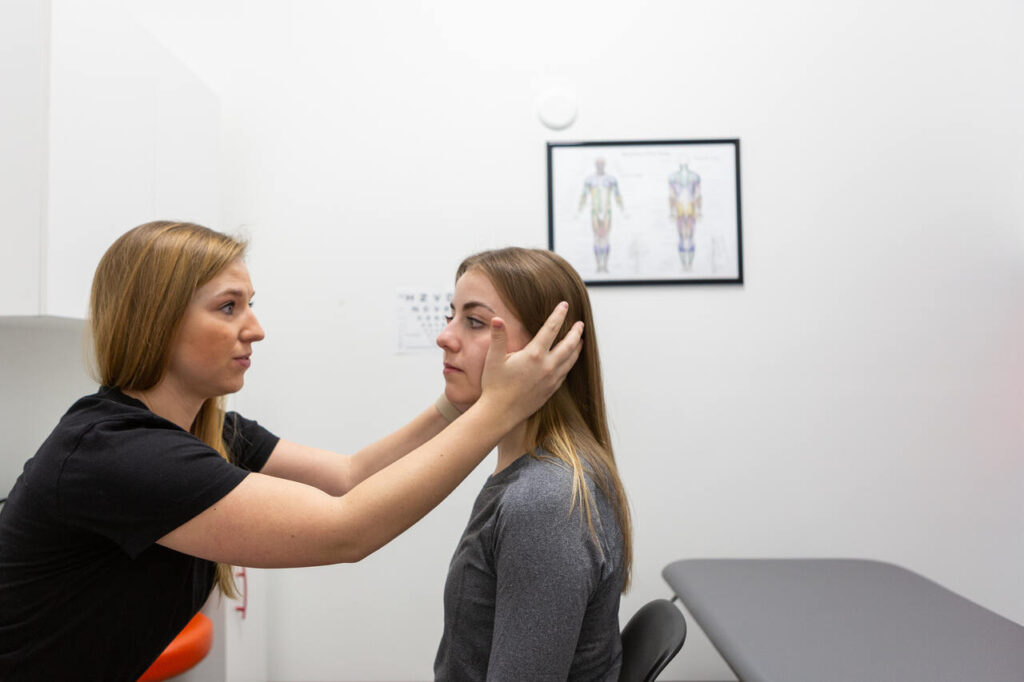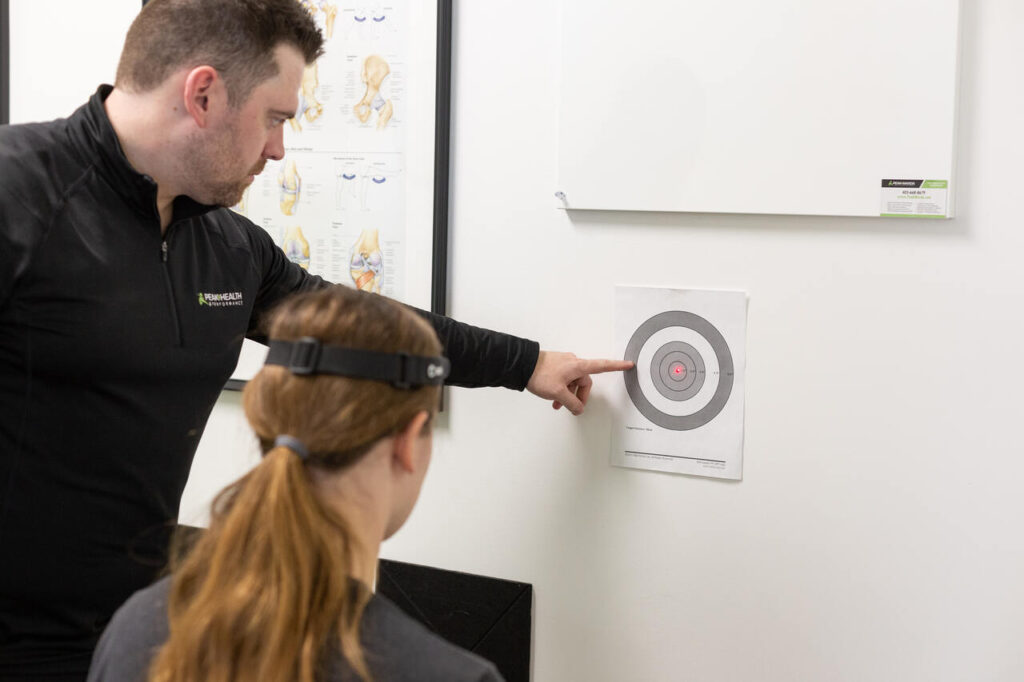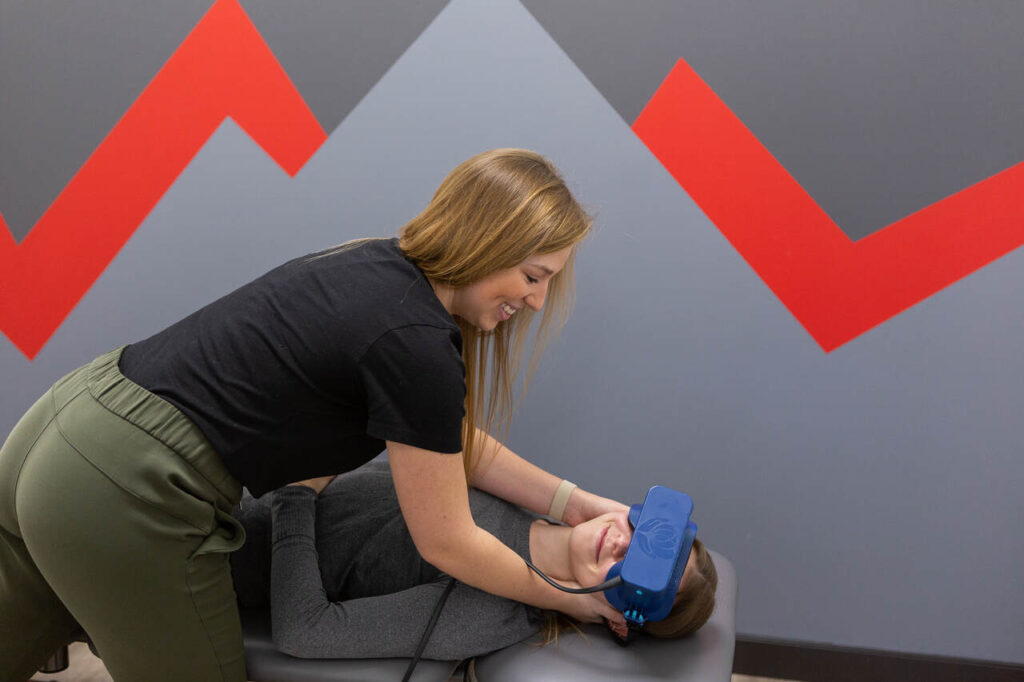Written by Jordan Knapman, Physiotherapist
Vestibular therapy, or vertigo treatment by a physiotherapist, is one of those topics that you likely don’t come across unless you or someone you know has been impacted by vertigo or severe dizziness. One of the most common misconceptions about vertigo is that it is something you ‘just need to live with’.
This is not the case at all! As a physiotherapist in Peak Health who is trained in vestibular rehabilitation, I can set that myth straight and say there is lots we can do to help you or your family member. Whether you are facing chronic dizziness, experience intermittent vertigo symptoms, or are unsure if what you have is even classified as dizziness, we are here to help. If you’ve been experiencing dizziness, or know of someone who has, you’ve come to the right place!
What is Vestibular Physiotherapy?
Vestibular Physiotherapy is a type of rehabilitation geared specifically for dizziness and balance. We have three senses that contribute to our balance and equilibrium, one of which is the vestibular system. This is a small organ in the inner ear that detects how fast we move our head position and in what direction.
Often, when we have a problem with this organ we can have a sensation of spinning, which is referred to as vertigo. Since information coming from the vestibular system is combined with information coming from our vision and foot sensation, a Vestibular Physiotherapist will often look at all 3 systems to determine the best course of action.
Can a Physiotherapist Use Tests to Diagnose My Dizziness?
No matter the cause of dizziness or vertigo, the tests that are needed will often bring on symptoms. Most commonly, the Dix-Hallpike Test is used to test for a common type of dizziness. In this test, the Physiotherapist will lie down a person on the treatment table quickly, while looking for a specific type of eye movement while you wear special goggles with infrared cameras.
Other tests may include balance with eyes closed on a foam pad, fast head movements, or even holding your breath! Unfortunately, these tests will often bring on similar symptoms to what you’ve been experiencing, as the Physiotherapist will need to determine what is responsible for your issue. This feeling is most often very short-lived and should dissipate quickly.
However, the most important test is your story as some problems cannot be tested for. A skilled Physiotherapist with training in Vestibular Rehab will spend time in careful discussion with you about what your symptoms feel like, how long they last, when they happen, and how they affect you. All of this allows the Physiotherapist to determine the most likely cause of your symptoms and determine the next steps to confirm their thoughts.
Does Vestibular Therapy Get Worse Before It Gets Better?
This is sometimes possible! Certainly, during treatment for one cause of vertigo, called BPPV, it is very common to feel worse both during and immediately after treatment. This subsides quite quickly, and most feel much better soon after. For other, more complicated causes of vertigo, it is possible to feel slightly worse during the first week of home exercises.
Thankfully, not everyone experiences this and we know that it does not mean things are moving in the wrong direction! Your Physiotherapist would help in making this determination and adapt your treatment plan if necessary.
How Long Does It Take For Vestibular Therapy To Work?
As with any type of rehabilitation, this largely depends on the underlying cause of your symptoms. For the aforementioned BPPV, the most common cause of vertigo symptoms, may resolve in as few as 1-3 treatments.
For most other vestibular causes rehabilitation may take an average of 6-12 weeks, depending on how long symptoms have been ongoing. Regardless of how long the dizziness has been occurring, Vestibular Physiotherapy can often make a difference (even if it takes a bit longer!).
So… Does Vestibular Therapy Actually Work?
Vestibular Rehabilitation can be very successful! For many vestibular conditions, Clinical Practice Guidelines mention that this therapy “provides a clear and substantial benefit” and has a “strong recommendation” when used appropriately.
That said, while an improvement in symptoms is expected in the majority of cases, not everyone will achieve a complete resolution of symptoms for every cause of dizziness. Your physiotherapist will help to determine a management strategy in the case of a long-term condition to deem if vestibular therapy is right for you.
Final Words
At Peak, we believe that through a thorough, in-depth assessment we can get you feeling confident with a plan to help you feel your best. Living with dizziness or balance issues should not be your normal, so let us help you feel your best again! Click here to book in for a vestibular assessment today.
References
Bhattacharyya N, Gubbels SP, Schwartz SR et al. Clinical Practice Guideline: Benign Paroxysmal Positional Vertigo (Update). Otolaryngol Head Neck Surg. 2017;156:S1-S47.
Hall CD, Herdman SJ, Whitney SL et al. Vestibular Rehabilitation for Peripheral Vestibular Hypofunction: An Updated Clinical Practice Guideline From the Academy of Neurologic Physical Therapy of the American Physical Therapy Association. J Neurol Phys Ther. 2022;46:118-177.


